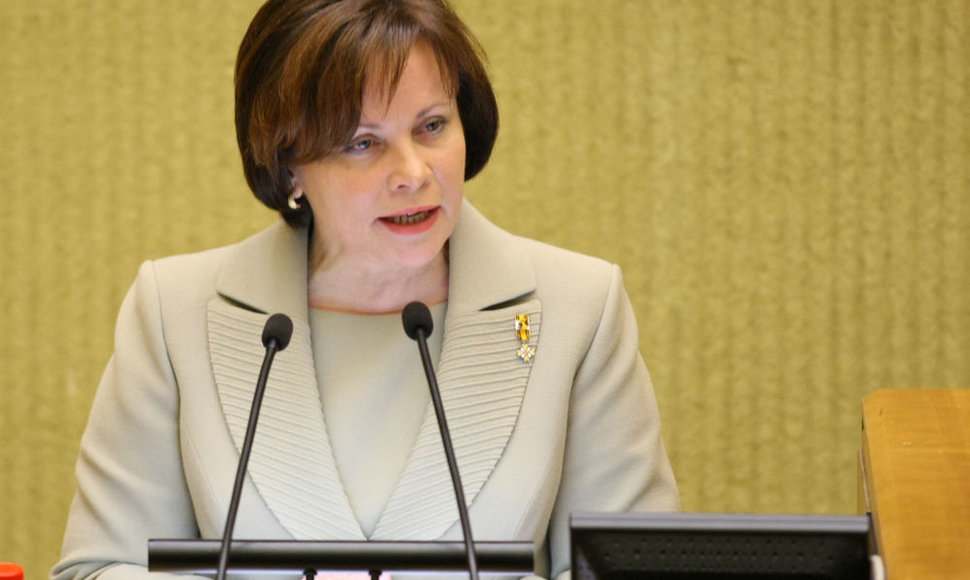The minister also says the increased frequency of Russian military flights above the Baltic Sea is not a threat, noting that this highlights the importance of the NATO air-policing mission.
"Neither Lithuania, nor other countries in the region consider Russia an enemy and constitute a threat to it. We want the region to be peaceful. Meanwhile, Russia has been militarizing its territories. For the past few years, a marked increase in activity of Russian Air Forces has been observed above the Baltic Sea. I am stressing that it is not only fighter jets that perform the flights. Last year, we observed heavy bombers, which we haven't seen since the Cold War," Juknevičienė said in an interview to the Lietuvos Žinios daily.
"I would not describe it as a threat; however, I am holding a realistic view of the regional situation. That's what I see: Russia has been intensively reforming its Armed Forces since 2007, and the bulk of the reforms are held in the Western direction – at Finnish, Estonian, Latvian borders and its Kaliningrad region," the defense minister said.
In her words, the situation would put Lithuania in danger, if it wasn't a NATO member. "This would be a threat, if Lithuania was alone. However, our country is currently a member of NATO, and the Alliance has sufficient capacities to counter such types of ammunition attacks, if they take place. I hope they will never happen," Juknevičienė added.
The minister also noted the need to boost defense spending and for now reach at least 1 percent of the gross domestic product (GDP). Lithuania has so far been granting under 1 percent of its GDP for defense purposes, as compared with 2 percent envisaged in its NATO Accession Treaty.
"Nobody's saying we should spend 2 percent of the GDP on defense right away. We're saying NATO countries have agreed that 2 percent is the minimum, which every member-state should earmark to modernization of its Armed Forces. NATO does not have a separate army, it is as strong as its every member-state is. If every country in the Alliance started doing what Lithuania is doing – spending merely 0.8 percent of its GDP on defense, what would NATO be like? Solidarity is the principle. The agreement among political parties says that we will gradually raise the funding to be closer to 2 percent. It's hard to say when we will finally reach them. For now, it would be good to reach at least 1 percent," Juknevičienė said.
In May, Lithuanian parties signed an agreement on defense policies for the 2012-2016 period. It envisages a long-term goal of earmarking 2 percent of the GDP for defense purposes. According to the government's calculations, Lithuania's current defense spending stands at 0.95-0.97 percent of the GDP.
In 2004, 11 Lithuanian political parties committed themselves of granting at least 2 percent of the GDP for defense purposes in the 2005-2008 period as continuation of the analogous document signed in 2001. However, the objective was never reached.












